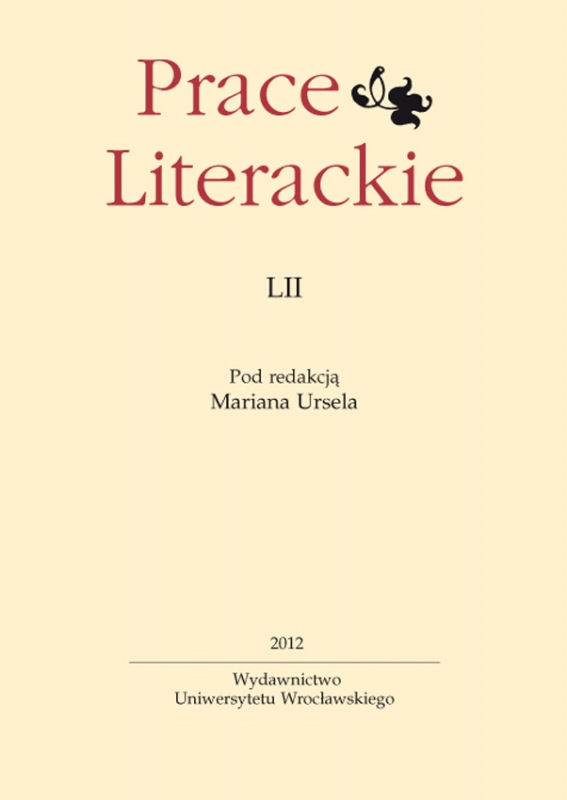

Artykuły

Transformations of Leopold Staff’s religiousness in critical and historical-literary perspectives
Religious issues occupy a considerable part of Leopold Staff’s oeuvre. Many literary historians and critics have referred to them in their works, yet their references usually do not go beyond particular volumes, poems or problems. Their conclusions are very often succinct and are subordinated to broader issues. This makes them unrepresentative of the writer’s entire oeuvre. A lack of solid foundations in the form of detailed analyses has led to an interpretative variety.
The present paper is an overview of the positions of over twenty scholars, including Stefan Lichański, Irena Maciejewska, Jerzy Kwiatkowski, Maria Jasińska-Wojtkowska and Daniel Skwirut. An analysis of their works makes it possible to determine the extent of antinomy among the conclusions constituting the interpretative spectrum of Staff’s religiousness. For example, the scholars differ with regard to the moments of the poet’s religious transformations. A vast majority point to two transpositions, though in their writings we can find no fewer than six configurations of the dates of the first and second breakthrough. A similar variety surrounds the origins of the poet’s turns to religion. Some believe they resulted from a pressing need for faith or God and a religious disposition, while others see the changes as stemming from a pragmatic and egocentric desire for spiritual improvement, a need to find a panacea for a suffering or a haven for an exhausted spirit as well as from fascination, reminiscences and historical events. Agreement can be found only among the views of scholars, who explain Staff’s turning away from religion by the influence of wars. These discrepancies result to a large extent from different ways of understanding the poet’s religiousness. Some link it to tradition, while for others it is an evocation of the reasons of Catholic modernism sanctioning religion as myth and cultural value. All this leads to a conclusion that the problem of Staff’s religiousness still contains more questions than answers.